The Concordia AntiAIDS Association is a non-profit, private (non-governmental) organisation which was set up in 1994 to look after the urgent needs of a group of people connected with HIV/AIDS who require special care and services.
Benefit Golf Tournament at Aloha
Golf Club
(Saturday 11th, 2019)

Her Majesty Queen Sofia visited the Day Center Concordia
The Anti-AIDS Association Concordia has been
declared of Municipal Public Utility
by the Municipality of Marbella
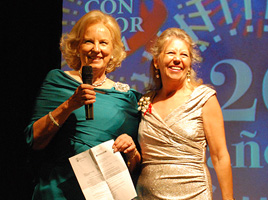

The mayor of our city, Dona Maria Angeles Muñoz,
surprised us with a very special gift:
a document to certify that our
Association’s “Public Utility” has been recognized by the Marbella Townhall,
taking into consideration Concordia’s work for those affected by HIV/AIDS and
their families, during the last 20 years.
With the support of:


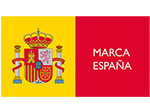

The Concordia Association has received the award MARCA MARBELLA
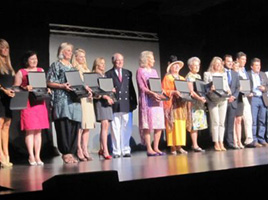
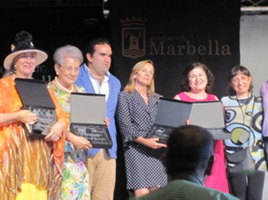
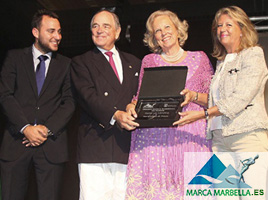
On 10 July there was the launch of the Gala awards
"BRAND MARBELLA" in the Palacio de Congresos Adolfo Suarez. The organizer of the
Gala was Carlos Latorre, creator and promoter of the idea of these having the
support of the City of Marbella and various local business awards.
READ MORE

NEWS ABOUT HIV / AIDS
Summary of news on the evolution of HIV, published in the national press. (Spanish)

Luc Montagnier, Nobel Prize in Medicine
Following a lifetime committed to the search for a therapeutic cure for the acquired immunodeficiency syndrome to eradicate the infection, the doctor in Medicine, Luc Montagnier, is placed in the Parnassus of world science because of his discovery of the Human Immunodeficiency Virus (HIV), following the call from Stockholm to grant him the Nobel Prize in Medicine 2008.
In an interview he granted to "El País", Montagnier considers that this Prize recognises a "collective achievement" in which dozens of investigators and doctors have participated.
The investigation to find a cure is at a "quite flat" moment, as Montagnier states, great progress has been made regarding the three therapies (the cocktail of three retroviral with which the illness is treated), however, the discovery of a preventive vaccination is distant. The doctor considers that the Prize will serve to remind people that AIDS exists and there is still a long way to go in the vaccination. In this sense, Montagnier is working on a therapeutic vaccination to prevent the patient from depending on medication for the rest of his life. This vaccination, according to his estimates, will be ready before the preventive vaccination, within a period of three to four years.
Asked by those individuals who have a higher risk of developing AIDS, the Nobel in Medicine indicates that the virus acts in those organisms which already present a degraded situation, because of the consumption of drugs or because of a complicated life, with alcohol abuse or little attention to nutrition. Some healthy individuals can be infected by the virus during a brief period but they can get rid of it immediately. The moral lesson of all of this is that you must lead a responsible life and avoid other infections. In Africa, for example, it is an illness of heterosexuals and 60% are women.
Montagnier has also been studying the connections between the virus and cancer. In this manner, he points out that a common factor between AIDS and cancer is the importance the cellular oxidation has in both illnesses. In the case of AIDS; in the infection from the virus, and in the case of cancer; in the genetic alteration which is produced. The oxidation stimulates the variability of the cell. For this reason it is important to avoid the oxidation process.
At 76 years old, Luc Montagnier considers that it is still "quite productive".
Françoise Barré-Sinoussi
The investigator from the Pasteur Institute has been the first French woman to receive the Nobel Prize in Medicine. Barré-Sinoussi enjoys the success with the same discretion she has lived with up until now by her anonymity as an investigator, with little public projection, virtually unknown outside the scientific environment. And she was one of the investigators, within Luc Montagnier´s team, who discovered the Human Immunodeficiency Virus (HIV) at the beginning of 1983.
This Prize has served her to acknowledge the practical scope of her work, as well as the responsibility of her task in the urgency to find basic formulae to improve the lives of patients.
For Françoise Barré-Sinoussi prevention is of vital importance. But, as she points out, there are many sectors of the population, including youngsters, who are forgetting it and this cannot be tolerated as the infection is there. It is true that the treatment is effective but the reality is that it is expensive, complicated and for life. Furthermore, according to the investigator, there are serious side effects over time.
In western countries such as France or Spain this situation is worrisome because, in addition, the individual infected by the virus takes much longer to become aware of it and this may lead to a chain of transmitting the disease from one individual to another, as Barré-Sinoussi states. For this reason an early diagnosis and tests are fundamental to prevent transmitting the virus.
In this sense, the international institutions have become highly involved in the past years in the fight against AIDS. Therefore, the Nobel Prize winner claims that the objective of the world fund against AIDS is that there is a universal treatment for all those affected by this illness in 2010. It is an ambitious objective one may dream of as long as the financial aid from the rich countries continues. The bad news is that we do not know what is going to happen with the world financial crisis. Regarding the current situation of the AIDS investigation, Barré-Sinoussi considers that many advances have taken place but there are also many unknown aspects. For example, if the virus is capable of provoking the immunodeficiency, the precise mechanisms for protection against the infection are unknown, which makes it difficult to find a vaccination against AIDS.
|
Spain has approved the pill which will revolutionise the day to day living of persons with HIV The Ministry of Health has just approved the medication Atripla, which gathers in one pill the three mostly used medications for the illness. In addition to this advantage, we must also add the psychological impact it will have on the patients. Approximately 50% to 60% of patients with AIDS may benefit from this new pill. For a 15 day journey, AIDS victims must take more than 100 large and colourful pills, and, in turn, cause suspicion at airports. The product has resulted from the cooperation of the Gilead and Bristo-Myeres Squibb laboratories. Atripla gathers in only one pill doses of the antiretroviral NNRTI, Emtriva and Tenofovir. These pills should be taken once per day, at any time. This prevents one from becoming a slave to one’s alarm clock and, in general, these are tolerated well by patients. However, the most important factor is the psychological impact of Atripla. By having to take only one pill this reduces the numerous obstacles which the affected persons are confronted with each day. For example, at a dinner, instead of having to take out colourful pills in front of everybody, which undoubtedly leads to questions being asked by the other diners, only one pill is required. Atripla prevents having to hide the medication, from having to invent strategies to take medication without being seen and from suffering from the anxiety that this produces. Despite the importance of the discovery of Atripla, AIDS continues to be an important illness with no cure and we should not undermine it. What we need to do is to avoid becoming infected. Preference should be given to prevention rather than any therapeutic advances.
|